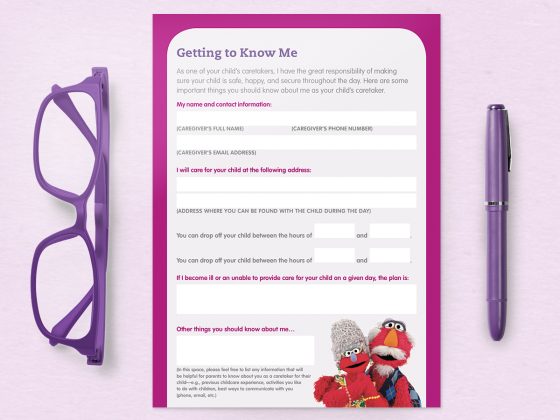
“Getting to Know Me” Workshop
Kids thrive when the people in their lives have honest communication.
Kids benefit when the people who are most involved in their lives and learning share information and have meaningful communication.
- Begin a discussion with childcare providers about things they already do to establish strong relationships with parents.
- Distribute the “Getting to Know Me” printable sheets and encourage caregivers to fill them out. Say, “You can use this as a communication tool to help parents learn more about you and your caregiving practices.”
- Divide the group into pairs for a role-play scenario, where one person is a caregiver and the other is a parent. Using the printable and the conversation starters below, have them role-play introductory conversations between parents and caregivers.You might say, “This activity will help you step into the shoes of a parent who is leaving their child in your care, and think about what might help them feel reassured. It will also give you practice communicating information parents should know about your caregiving experience and approach, to help them feel confident in your care.”
- Post the following questions on chart paper around the room, and encourage the family as caregivers to use them as seeds of ideas for conversation. They can take turns thinking about the questions from the lens of the caregiver (“What do I want to say in response to this question?”) as well as from the perspective of the parent (“What would I want to hear as a response to this question?”):
- How do you normally introduce yourself to parents of children in your care? What information do you share about yourself and your caregiving experience?
- What are some things parents usually want to know about you or about their child’s care experience before they leave children in your care?
- What do you typically ask parents about their children’s needs, behavior, personality, or learning level?
- How do you update parents on children’s learning?
- Regroup, and end the session by asking caregivers to share ways that they get support and advice about setting up positive relationships with parents, and sharing their childcare practices, philosophies, and routines.
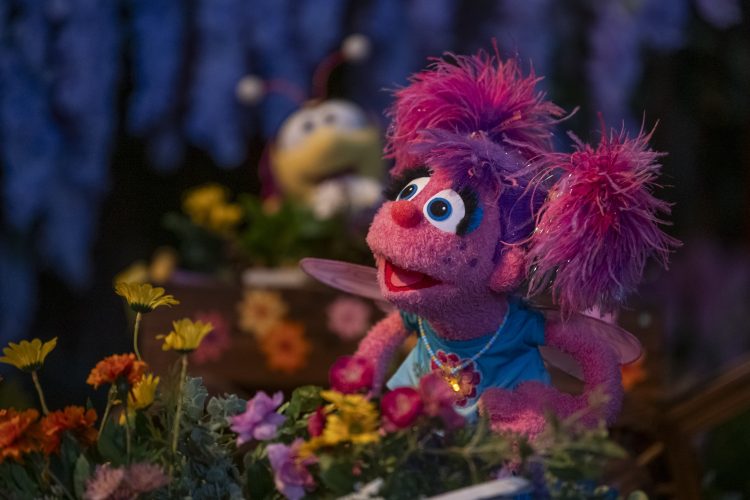
Watch and Play: Abby's Magical Beasties
Watch this episode and explore ways to extend the learning at home.
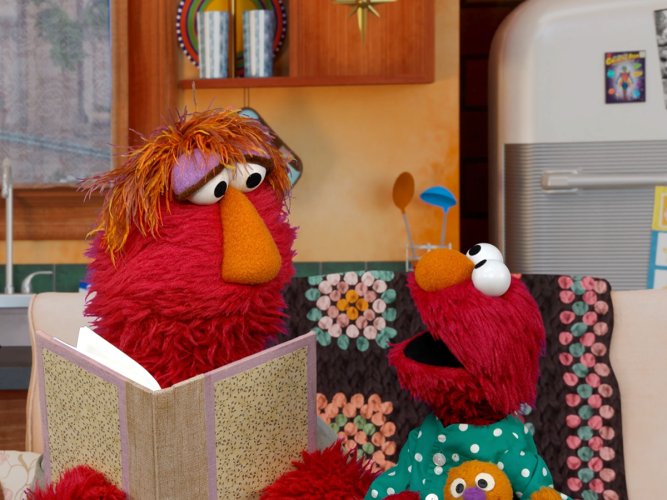
Go To Sleep, Elmo!
Handling a middle-of-the-night monster moment.
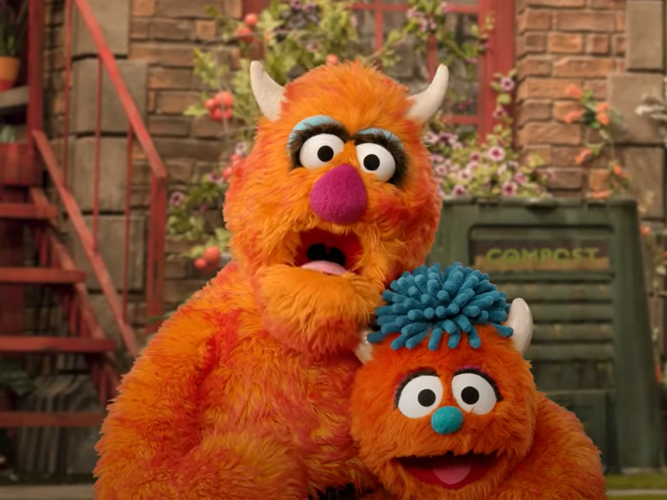
Monster Meltdown
Meltdowns happen… but they are somewhat predictable! As you try to handle them, curiosity and patience go a long way.
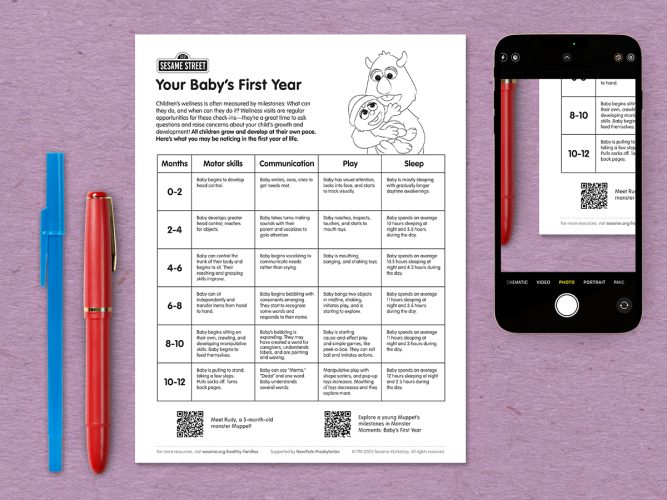
Milestones: Your Baby’s First Year
All children grow and develop at their own pace; use this chart to guide your expectations and observations so you can talk to your child’s pediatrician about questions or concerns.
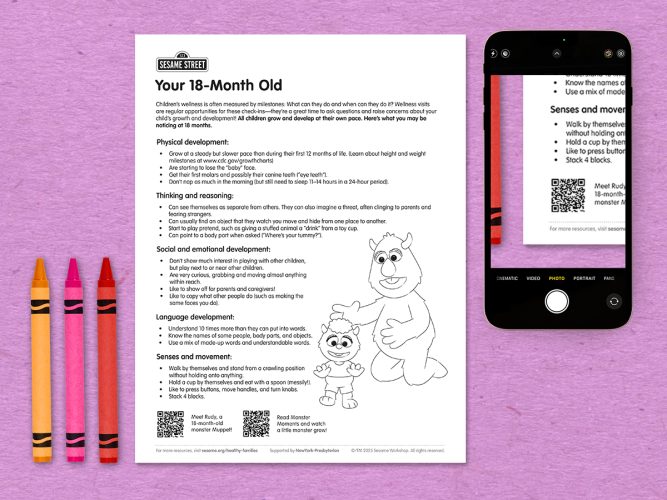
Milestones: Your 18-Month Old
All children grow and develop at their own pace; use this chart to guide your expectations and observations so you can talk to your child’s pediatrician about questions or concerns.
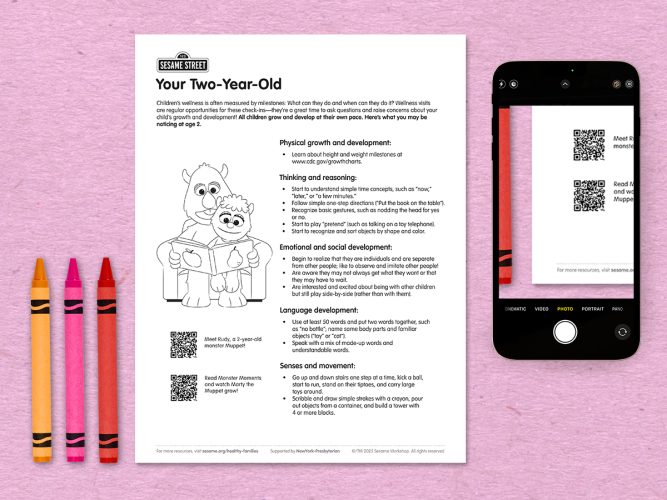
Milestones: Your Two-Year-Old
All children grow and develop at their own pace; use this chart to guide your expectations and observations so you can talk to your child’s pediatrician about questions or concerns.
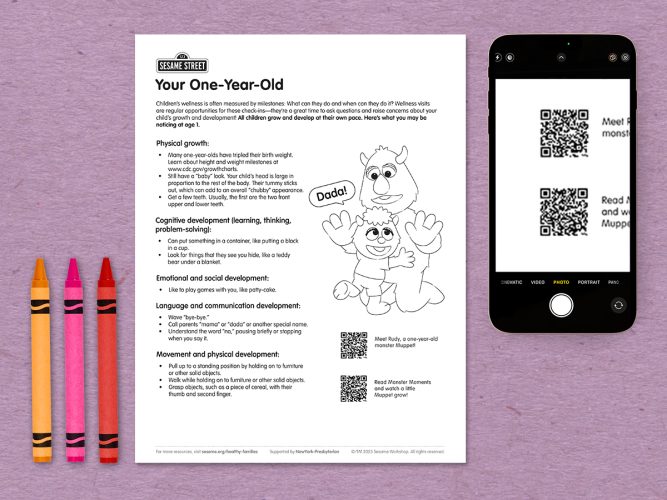
Milestones: Your One-Year-Old
All children grow and develop at their own pace; use this chart to guide your expectations and observations so you can talk to your child’s pediatrician about questions or concerns.
